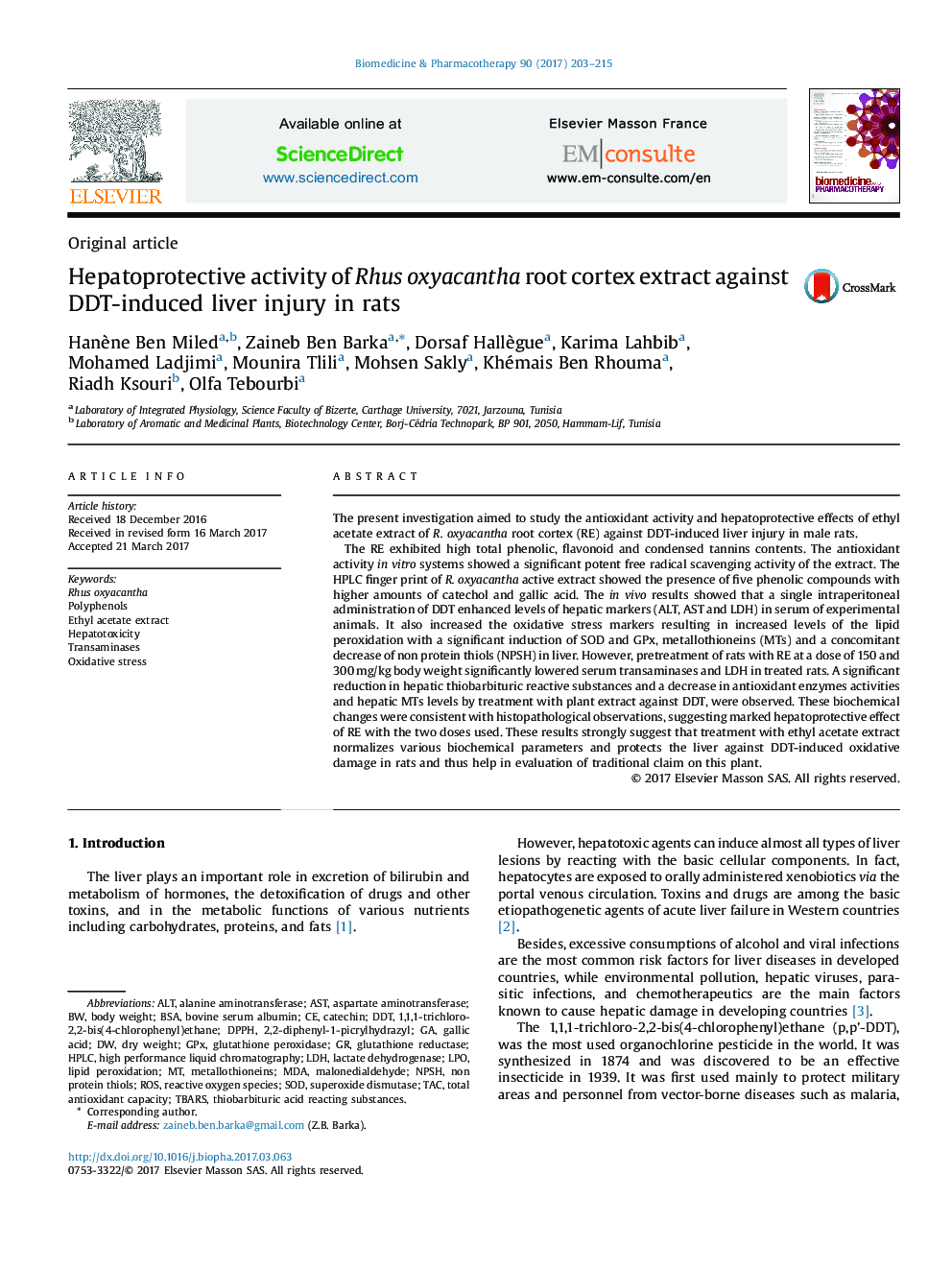| Article ID | Journal | Published Year | Pages | File Type |
|---|---|---|---|---|
| 5553035 | Biomedicine & Pharmacotherapy | 2017 | 13 Pages |
The present investigation aimed to study the antioxidant activity and hepatoprotective effects of ethyl acetate extract of R. oxyacantha root cortex (RE) against DDT-induced liver injury in male rats.The RE exhibited high total phenolic, flavonoid and condensed tannins contents. The antioxidant activity in vitro systems showed a significant potent free radical scavenging activity of the extract. The HPLC finger print of R. oxyacantha active extract showed the presence of five phenolic compounds with higher amounts of catechol and gallic acid. The in vivo results showed that a single intraperitoneal administration of DDT enhanced levels of hepatic markers (ALT, AST and LDH) in serum of experimental animals. It also increased the oxidative stress markers resulting in increased levels of the lipid peroxidation with a significant induction of SOD and GPx, metallothioneins (MTs) and a concomitant decrease of non protein thiols (NPSH) in liver. However, pretreatment of rats with RE at a dose of 150 and 300Â mg/kg body weight significantly lowered serum transaminases and LDH in treated rats. A significant reduction in hepatic thiobarbituric reactive substances and a decrease in antioxidant enzymes activities and hepatic MTs levels by treatment with plant extract against DDT, were observed. These biochemical changes were consistent with histopathological observations, suggesting marked hepatoprotective effect of RE with the two doses used. These results strongly suggest that treatment with ethyl acetate extract normalizes various biochemical parameters and protects the liver against DDT-induced oxidative damage in rats and thus help in evaluation of traditional claim on this plant.
